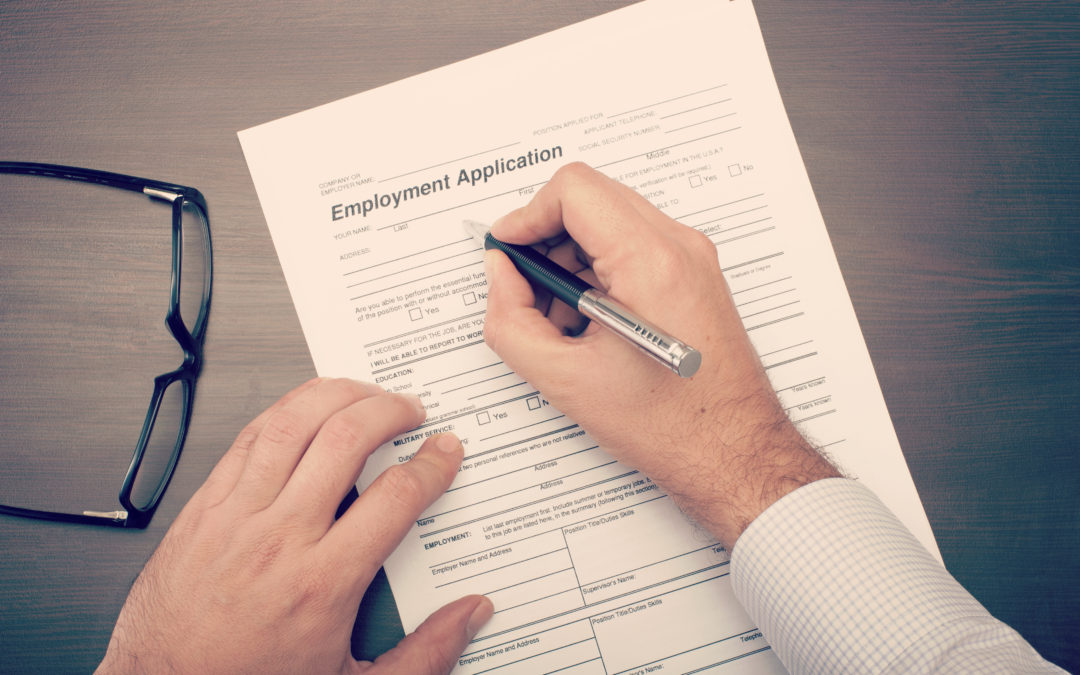Pre-employment Screening Has Evolved
While pre-employment screening has always been a part of the hiring process, over the years it has gotten more complicated for job-seekers. Many people out in today’s job market are out there for the first time in years or even decades and may not realize how much the process has evolved since they last applied for a job. Others may be applying for their first job.
In today’s world there is a multi-tiered approach to pre-employment screening. Far more goes into the job candidate than a mere reference check that was the main form of screening in days gone by.
Background checks have added an entirely new dimension to the pre-employment process and include several categories.
Credit Checks
Credit checks were added into the hiring cycle as a way to determine the responsibility level of the job candidate. The thought process is, if a person can’t be responsible with their finances, how can they be counted on to be responsible on the job? In addition, if the job in question requires the employee to have access to company funds, an employer wants to know if there are any red flags to watch for if the candidate has credit problems and could potentially use their position to gain access to needed funds.
Credit checks tend to scare many people who have occasionally missed a credit card payment or been late with the mortgage payment, but these are not the types of things employers are generally concerned about. Student loan defaults, liens and accounts that have gone to collections are more serious items that may cause issues when applying for a new job.
Some states have passed laws restricting how or if credit checks can be used in the employment process. Be sure to check the laws in your state if you are unsure if credit checks are allowed for job-screening.
Criminal Record Checks
Criminal record checks are one of the most common tools used in a background check. Previously a criminal record would have gotten your resume into the document shredder. Now, thanks to laws like Ban the Box, that rationale is changing. According to the Ban the Box Campaign employers are being challenged “to choose their best candidates based on job skills and qualifications, not past convictions.” This is good news to a large sector of the U.S. population. Rick Jones, a trial lawyer, estimated in 2014 that more than 68 million Americans have a criminal record.
In addition, the EEOC states on its website that when using criminal background checks, “…the employer cannot conduct background checks or use the information obtained in a manner that denies equal employment opportunity to anyone on a protected basis, by intent or by unlawful disparate impact.”
That is not to say a violent offender will get a position as a caretaker or someone convicted of theft will be head of the accounting department, but more of the burden has definitely shifted to the employer when using criminal record checks in the pre-employment screening process.
Reference Checks
The traditional reference check is still an important part of the hiring process. This involves the company making contact with past employers to verify employment dates, job responsibilities and salaries. Additionally, some employers may ask for personal references, especially if a candidate has little or no prior job history.
Reference checks have gotten more in-depth with employers having the ability to dig deeper than just yes and no answers. An article from U.S. News & World Report, ‘Reference-Checking Secrets Employers Won’t Tell You’ explains the importance of listing the right sources for your reference check.
Education and Certification Checks
The internet brought about the evolution of being able to quickly download a fake diploma or any other type of licenses and certifications. Employers have learned, some the hard way, the importance of verifying these credentials as part of pre-employment screening. These are public record and easy for an employer to check. Lying about these matters is a sure way to have your resume tossed in the trash.
Drug Testing
Drug testing may or may not be part of your pre-screening process, depending on the relevancy it has on the job in question. For instance, a healthcare worker with access to medications or anyone in the public transportation sector, would surely be subjected to drug testing. If you are required to take a drug test and are taking prescription medications, be prepared to show proof of legality at the time of the testing.
Motor Vehicle Records
In the past a DUI or other major driving offense may have kept you from even being considered for a job. Things are changing, again thanks to campaigns like Ban the Box, and these charges will not necessarily be held against you when being considered for a job. That is unless it applies to your direct responsibility in that position. For instance, a truck driver with a DUI will not be as likely to move on in the interview process.
Final Thoughts
Background checks are here to stay. However, in our ever-fluid and changing society, it is important to understand how they are being used when applying for a job. Do your research and know your state and federal laws to be sure the employer is following proper screening techniques and treating you fairly.
Sentinel Background Checks is a well-known and respected provider of employer background screening. Try SBChecks’ Self Check App to ensure there are no surprises with your background check. Call us today at 888-725-2535 to find out how!

